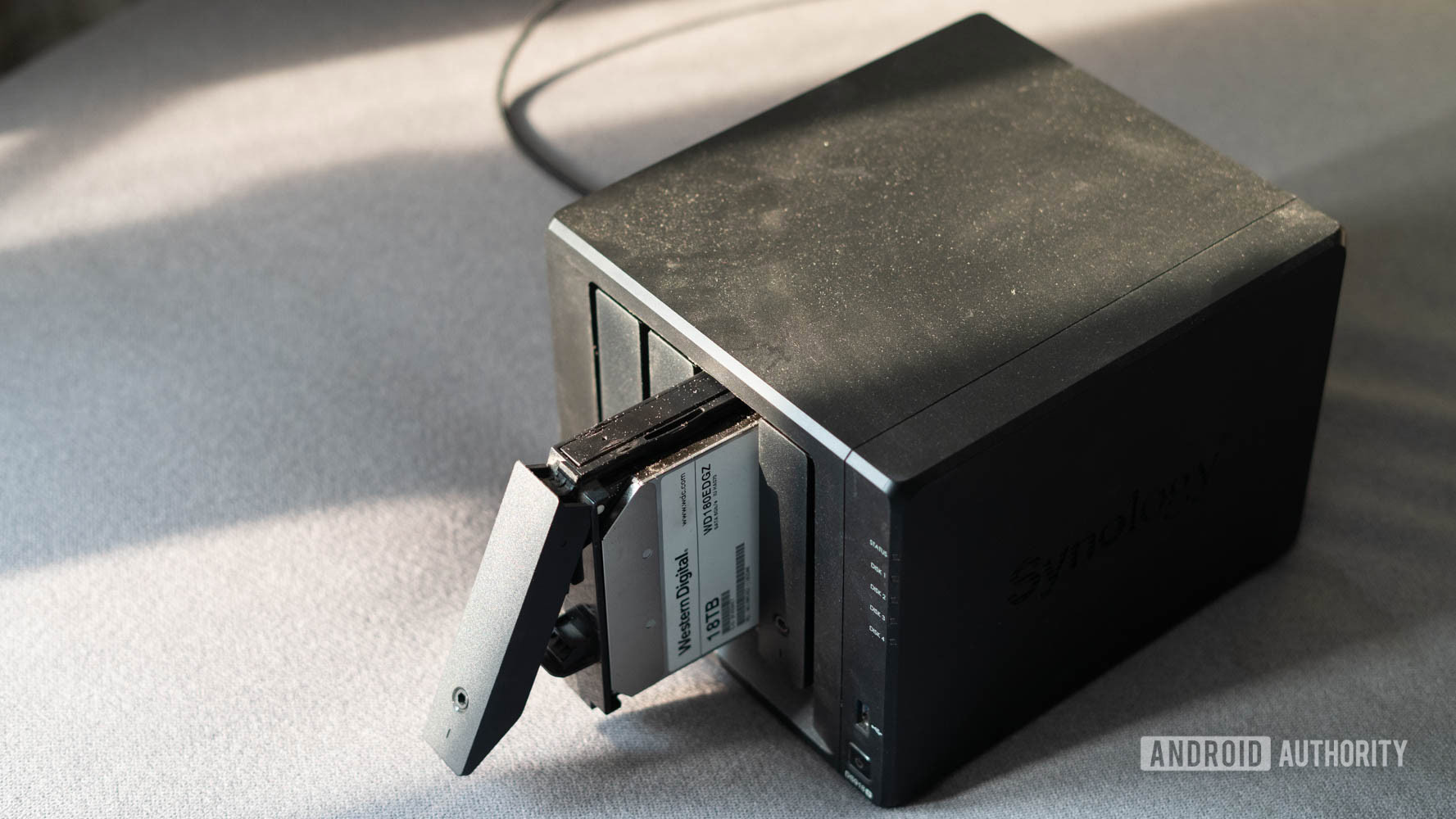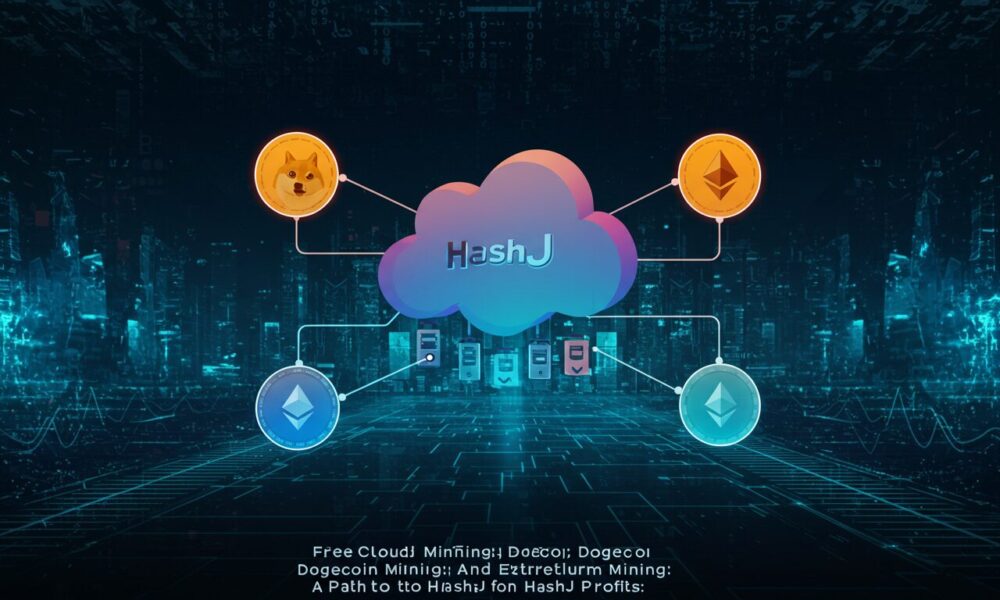Robert Triggs / Android Authority
I’m your average techie millennial who saw the dotcom bubble burst and was around when many of the OG services of the internet era simply vanished. Let’s just say, watching favorites like GeoCities and Launchcast go bust was a big motivation for me to start self-hosting my most-used services as soon as I was able to. Initially, it was mostly curiosity and tinkering. That changed over time. Today, self-hosting for me is equal parts habit, convenience, and once-in-a-while stubbornness to stick with open-source solutions.
But first, what the heck is self-hosting and how is it any different from running an app on your computer? Honestly, it’s not all that different. Broadly speaking, self-hosting is all about replacing software that is traditionally associated with cloud-hosted tools with applications and services that run on your local hardware. It sounds complicated, and at first it is, but over the years you come to appreciate the freedom it gives alongside the occasional headaches it might bring. Take the bitter with the better, eh?
Do you self-host services?
17 votes
Cloud isn’t bad, self-hosting is better

Dhruv Bhutani / Android Authority
It’s easy to presume that anyone into self-hosting is taking an anti-cloud or anti-SaaS stance. But the truth is somewhere in the middle. Self-hosting is all about maintaining control. When your files, chat history, or notes live on someone else’s servers, you’re trusting that company with managing uptime, security practices, and, generally, decisions on the future of the service. If a company like Google can shut down a service that doesn’t meet its internal targets, it is easy to see why I’d trust smaller companies even less.
Moreover, I like knowing where my data is, who can access it, and how it’s being stored. Of course, as a self-hosting veteran, I’m one of those grumpy old guys who want explicit control over apps, customization, and a micro-transaction free plan. But we’re getting into the weeds here. The fact of the matter is, I’ve spent days tweaking and customizing a media server or personal cloud service to handle an edge-case scenario that most commercial services wouldn’t touch. That’s the beauty of having control over software.
Commercial services can rarely give you the kind of customisation and flexibility that self-hosted options offer.
Privacy and security are, predictably, some of the other reasons I stick with self-hosting. It doesn’t automatically make your data safer, but the two-pronged approach of open-source apps makes it much more likely to be secure. For one, open-source apps used by thousands of nerds usually get audited and called out for poor security practices. Secondly, these apps give you the choice to roll out your own security precautions. Think setting up an OIDC server for added degrees of authentication. I’ve encrypted everything from notes to photo backups, set up hardware firewalls, and isolated critical services to ensure that I’m not at the mercy of a hacked server, which does and has happened multiple times before. There’s a sense of ownership, and dare I say, pride that comes with knowing that you’re responsible for securing your data, knowing how it’s handled, and how good or bad a job you’ve done at it.
There’s of course a learning curve, as with anything worth doing. It can be steep, but it gives you real-world skills that translate to multiple aspects of working with networks and technology, not to mention boosting critical thinking. Networking, containerization, server maintenance, troubleshooting logs — all of these have become second nature to me over the years and have helped me understand how my tools work. This is important because every failure in the world of self-hosting teaches you the skills you need to fix problems faster, adapt to new tools, and experiment with fresh ideas. These skills have saved me money, time, and have been a massive learning experience. That’s something you can’t put a price on. But if my personal experience isn’t enough to convince you on the merits of self-hosting, here are a few more pros and cons to consider.
The upsides of self-hosting

Dhruv Bhutani / Android Authority
The biggest reward of self-hosting is freedom. How much of a reward that is depends on your personal relationship with technology. Take my media setup for instance. I run Plex for movies, Logitech Media Server for music alongside Plex Amp, and an instance of Beets. Between ripping my collection of vinyl and CDs, I have a nearly fully automated setup that can rip, transcode based on my chosen settings, automate metadata retrieval, and dump it in a service that me, my family, and friends can access from anywhere in the world. Sounds like Spotify but complex? Yes. Except in a world where more and more artists are pulling their catalogs off the service, and millions of albums aren’t even available, my personal server persists. No subscription plan offers me these features. And that’s just a humble media server.
Freedom from corporate decision making, micro-transactions, subscription fees is a bit upsell.
Cost is another factor. Sure, self-hosting has a higher initial cost of investment and a somewhat recurring investment of time, but the long-term savings compared to paying multiple subscription fees adds up. And this isn’t just for entertainment. I run Nextcloud for personal notes and documents, Outline for knowledge management, and Immich as a Google Photos alternative. Just matching my multi-terabyte server in cloud storage would probably rack up a bill of hundreds of dollars a month. Except, with self-hosting, I have the choice to add new tools, retire old ones, or migrate to new ones that are similar but better.
Customization is yet another highly addictive factor to consider. I’ve got custom dashboards that integrate weather, calendar events, critical notifications, and more. It’s the old My Yahoo page, but fine tuned to my needs and without ads. My kanban board shows up here and my personal bookmarking service of choice, Wallabag, immediately grabs a snapshot of whatever I want to save for posterity. There is no commercial alternative to this kind of flexibility.
The downsides of self-hosting

Robert Triggs / Android Authority
As great as all of this sounds, self-hosting isn’t always sunshine and rainbows. Maintaining your stack is on you, and it isn’t something you can ignore. Updates, patches, and backups are your responsibility. And no, you can’t just hit the update button. You’ll want to read update logs for breaking changes and community feedback from early testers before updating your software. And sometimes, despite those precautions, things fail. A botched update on my self-hosted notes server wiped away days of work. Sure, I could roll back from a backup, but that is, obviously, another thing to configure and maintain. When self-hosting, mistakes have real consequences.
Mistakes have real consequences when it comes to self-hosting.
Similarly, security is a double-edged sword. It isn’t all that hard to misconfigure a tool and open up more ports than you should. Weak passwords and sloppy authentication setups can make your systems vulnerable to attacks and malware.
Then there’s the time spent on setting up a stack you like. The open-source world can present the problem of plenty, just like Netflix. With a dozen note-taking apps available, which is the one you’d opt for? Initial setup can take days. Even today, I find myself fine-tuning and changing things in my setup. Casual users who just want something that works can absolutely get into the self-hosting world. But for easily distracted nerds like me, the self-hosting world opens a candy shop that can be a massive time and money sink. And that’s not always a positive.
Frustration, freedom, and everything in between
A decade and a half of self-hosting later, would I do things differently? No. As someone who values control, privacy, and flexibility, the effort has been worth it for me. The challenges are real, but so are the rewards. My current software stack gives me features that no commercial service does. And once you start treating self-hosting like a hobby, there’s a lot of joy to be derived from fussing over how to install a new service, tweaking configurations and environment files, and seeing everything run smoothly, or fail spectacularly. If that’s you, the sense of independence never gets old.
Self-hosting isn’t just about running apps, it’s about running your digital life on your own terms.
However, if convenience is paramount, self-hosting just might not be worth the effort. Cloud services save time and handle the stress of maintenance for you. Everything from updates to security to downtime management is taken care of. Casual users, or those who value their time more than control, will likely gain more from a SaaS service than hosting their own server. After all, the risk of losing your data is one in a million.
At the end of the day, self-hosting is less about building the perfect stack and more about choosing where you want to draw the line between convenience and control. For me, I’ll keep tinkering, keep breaking things, and keep fixing them. Because that balance of frustration and freedom is exactly what makes it worthwhile. Self-hosting isn’t just about running apps, it’s about running your digital life on your own terms. It isn’t for everyone, and that’s okay.
Thank you for being part of our community. Read our Comment Policy before posting.










